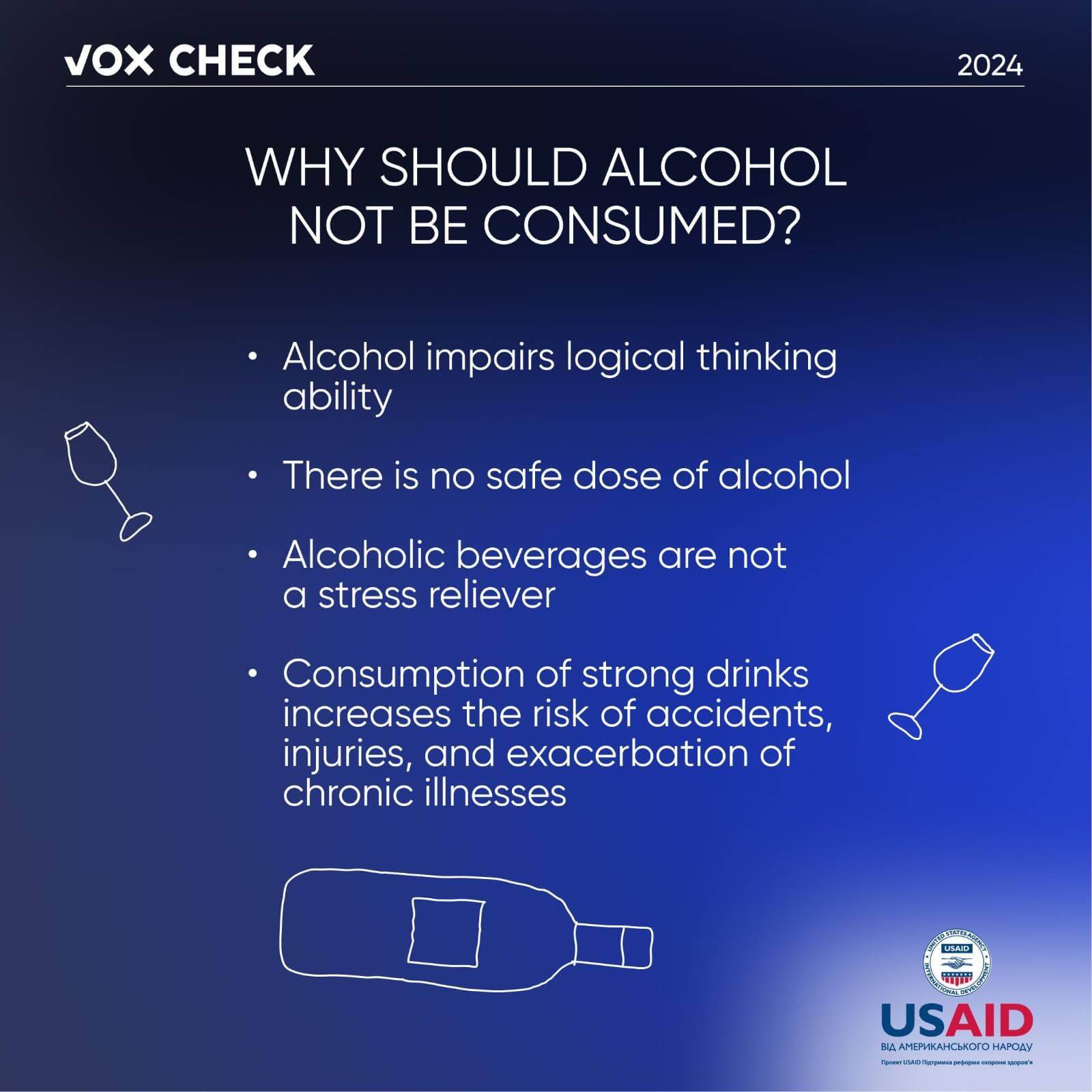Scientists, among other things, study the influence of various products and substances on the body. The question of the benefits of alcohol has been the subject of debate for many years, and now the scientific community tends to believe that there is no amount of alcohol that could be beneficial.
With the support of the USAID Health Reform Support project, VoxCheck analyzes and refutes public health narratives spread in the information space of Ukraine, Belarus, and russia on a weekly basis.
Information is being spread online claiming that beer strengthens bones and reduces the risk of heart disease, positively affects brain and kidney health, and also prevents gum disease.
Screenshot of the post
What’s the reality?
The source of information about the benefits of beer is the African tabloid Pulse Ghana. The website covers current events, sports, entertainment, and lifestyle. Media Bias/Fact Check, which evaluates the quality of foreign media, identifies the factuality of Pulse Nigeria, belonging to the same group, as mixed. This means that this resource is noted for failed fact-checking of the facts used to form the material and the lack of references to sources. The article about beer on the Pulse Ghana website also does not contain any references or indications of specific research.
Previously, we have already refuted claims that alcohol can be beneficial for the heart or other organs when consumed daily. Alcohol in any amount cannot be a preventive measure. At the beginning of the 21st century, scientists indeed suggested that moderate alcohol consumption, including beer, potentially has a positive effect on the body. However, now there is an increasing number of studies showing that even moderate alcohol consumption is harmful to health.
“Any benefit [of alcohol] from heart disease and diabetes is weighed by the increased risk of cancer,” says Dr. Brian Lee, a liver specialist at the Keck School of Medicine of the University of Southern California. “There’s no alcohol that can improve your health and probably any alcohol use is harmful.”
As for the claim that beer “strengthens bones,” the point is that some types of beer contain a high level of silicon, the presence of which in the diet helps prevent osteoporosis. Osteoporosis is a progressive disease characterized by a loss of bone mass and calcium content in bone tissue. People with osteoporosis are more prone to fractures. Fractures of the hip, forearm, wrist, and even spine are characteristic of this disease. Increased consumption of silicon with food may have a beneficial effect on skeletal health.
However, beer is not the only source of silicon. Unpolished rice, oats, barley groats, millet, sesame seeds, soybeans, strawberries, asparagus, and beans are rich sources of silicon as well.
On the contrary, alcohol consumption promotes the development of osteoporosis. The results of a series of scientific studies on this topic have shown that people who consumed 1 to 2 alcoholic beverages per day, i.e., in moderate amounts, had a 1.34 times higher risk of developing osteoporosis.
The claim that beer supposedly “positively affects brain health” is absolutely untrue. An analysis of data from over 36,000 adults in the UK found that alcohol consumption is associated with a reduction in overall brain volume. As you age, your brain naturally shrinks. However, alcohol consumption can lead to accelerated brain shrinkage and a faster decline in memory, decision-making, and other brain functions.
What truly benefits health is maintaining a healthy diet, controlling weight, and getting enough physical activity. There is no scientific evidence that consuming beer or any other alcoholic beverage can replace these common measures.
Source: Ministry of Health of Ukraine
The Ministry of Health of Ukraine also emphasizes that there is no safe dose of alcohol. The press service of the Ministry of Health of Ukraine conducts informational campaigns to increase public awareness of the harmful effects of alcohol.
This information piece was produced with the assistance of the United States Agency for International Development (USAID), provided on behalf of the people of the United States of America. This article’s content, which does not necessarily reflect the views of USAID, the United States Government, is the sole responsibility of Deloitte Consulting under contract #72012118C00001.
Attention
The authors do not work for, consult to, own shares in or receive funding from any company or organization that would benefit from this article, and have no relevant affiliations




